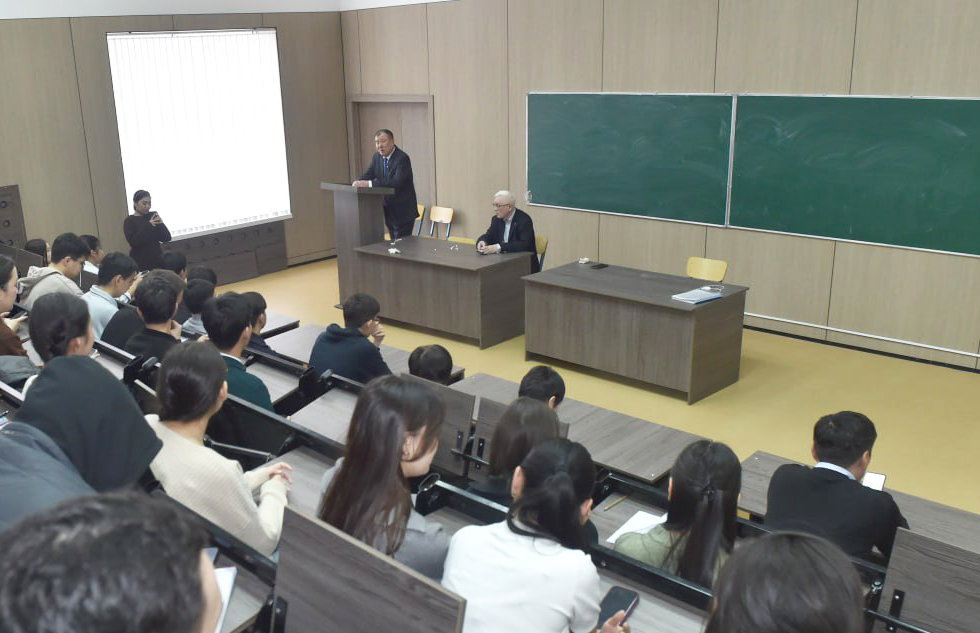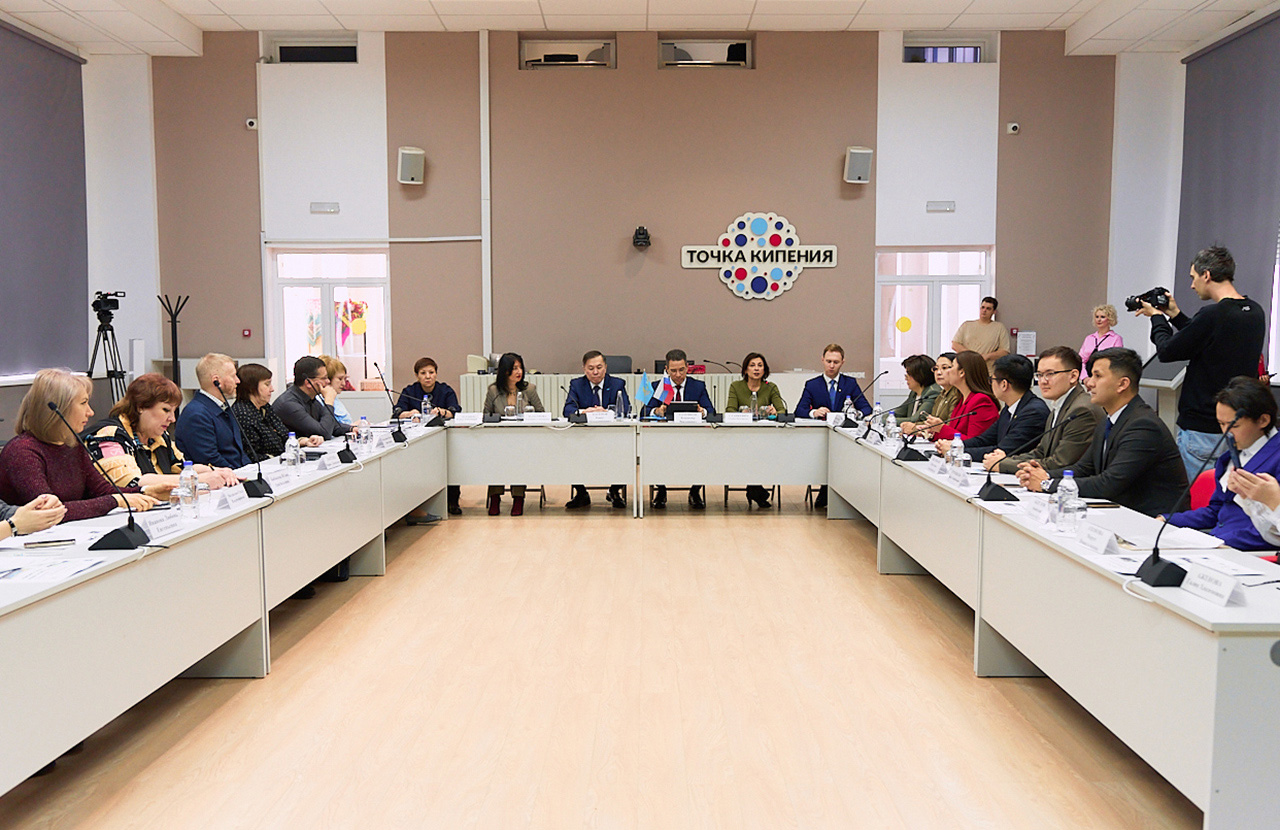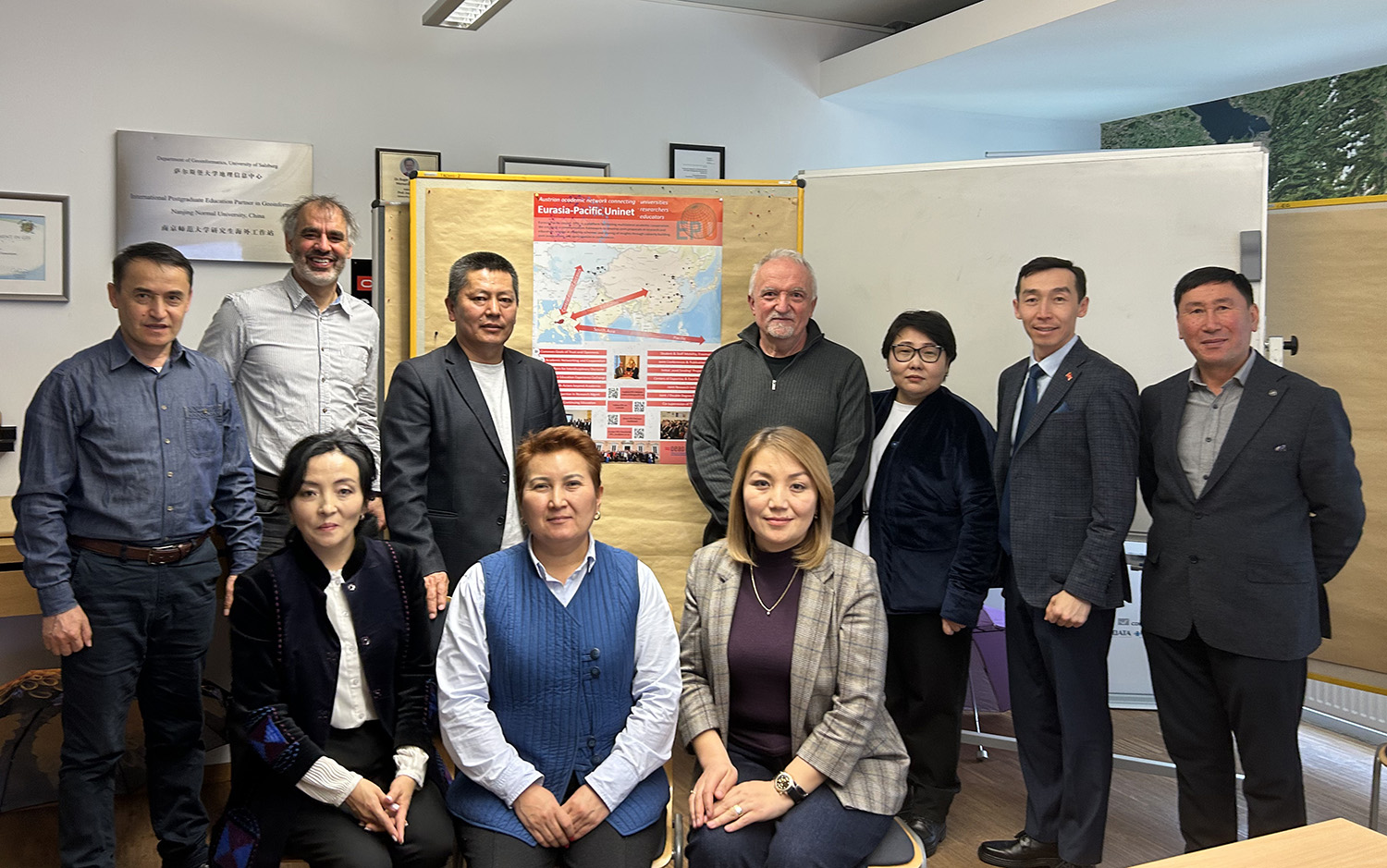- Main
- News
- The Archaeozoological Center for the Study of Central Asia in Al-Farabi Kazakh National University
The Archaeozoological Center for the Study of Central Asia in Al-Farabi Kazakh National University
.jpeg)
The Archaeozoological Center for the Study of Central Asia plays a key role in the research and understanding of the ancient fauna and ecosystems of the region. Its activities are of significant importance to numerous scientific disciplines and help reconstruct the past of Central Asia, providing valuable data on the interaction between humans and animals over millennia.
On May 20, 2024, a signing ceremony was held for the establishment of a joint archaeozoological scientific laboratory, the "Archaeozoological Center for the Study of Central Asia." The agreement was signed by Antoine Petit, representing the National Center for Scientific Research from France, and Duyssenov E.E., a member of the board and Vice-Rector for Operational Activities of Al-Farabi Kazakh National University (KazNU).
Main Areas of Activity:
- Study of Ancient Ecosystems: Research on animal remains helps reconstruct ancient ecosystems and climatic conditions in Central Asia.
- Paleontology and Archaeology: The discovery and analysis of animal bones provide insights into evolutionary processes and changes in the region's biodiversity.
- Anthropology and Ethnography: Studying the interaction of ancient humans with their environment, including hunting, animal husbandry, and the use of animals in daily life and culture.
- Preservation and Popularization of Knowledge: Creating databases and archives, organizing exhibitions, and conducting educational programs for the general public.
Importance of the Archaeozoological Center:
Scientific Discoveries and Research:
- Reconstruction of Regional History: The center's research helps understand how the flora and fauna of Central Asia have changed over thousands of years, which is crucial for reconstructing historical processes and natural disasters.
- Evolutionary Studies: Data on ancient animals help study evolutionary processes and species adaptation to changing conditions.
Understanding Human-Nature Interaction:
- Anthropogenic Impact: Research shows how ancient communities influenced nature and, conversely, how changes in ecosystems affected people's way of life.
- Animal Husbandry and Agriculture: Archaeozoological data help understand the development of agriculture and the use of animals in economic activities.
Ecological and Climatic Research:
- Climate Changes: Studying animal remains allows conclusions about climatic changes in the region, which is important for modern climate models and forecasts.
- Biodiversity: The center's research helps understand changes in biodiversity and their consequences for ecosystems.
Preservation of Cultural and Natural Heritage:
- Archaeological Monuments: The center's work contributes to the preservation of archaeological monuments and the protection of cultural heritage.
- Education and Outreach: The center conducts educational programs, exhibitions, and publishes scientific works, popularizing knowledge about the ancient history and nature of the region.
Significance for the Region and the International Community:
- International Cooperation: The center attracts scientists from around the world, facilitating the exchange of knowledge and experience in the field of archaeozoology.
- Advancement of Science and Technology: The center's research contributes to the development of new methods and technologies in archaeozoology and related disciplines.
- Economic Development: The tourist potential of the center's archaeological monuments and museums can contribute to the development of the local economy.
The Archaeozoological Center for the Study of Central Asia is an important scientific and cultural institution that significantly contributes to the understanding of the ancient history and ecology of the region, promotes the preservation of cultural heritage, and plays a key role in international scientific research.

.jpeg)
.jpeg)


